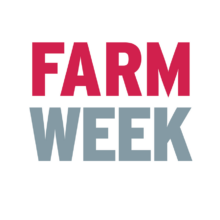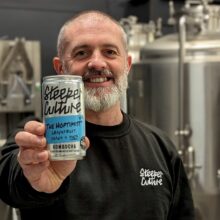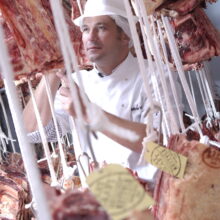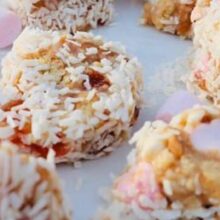Quality Food Award winner Clandeboye launching new yoghurts
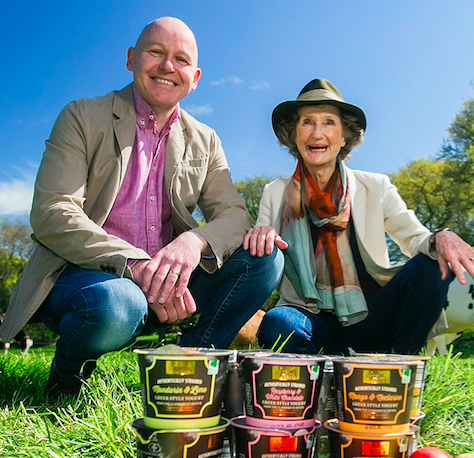
Clandeboye Estate, the sole producer of yoghurt in Northern Ireland, is gearing up launch three exciting new flavours in the coming months. The Bangor-based company is a winner of a range of prestigious awards including the Irish Quality Food Award.
The new flavours in the pipeline are; Fig and Honey, Strawberry and Goji Berry, and Blackberry and Vanilla. The company is a Food NI member company.
Producing premium quality yoghurt products is top priority for Clandeboye Estate Yoghurt, which took home the Small Producer UK Quality Food and Drink Award – Dairy in 2018. But so is being self-sustained, upholding the company’s green ethos, while expanding the range with bold flavours, looking for new business and building a bigger plan.
Owned by Lady Dufferin, Clandeboye Estate has a rich history, and now it produces its own milk from their pedigree herd of Holstein and Jersey herds, which are bred on the sprawling state.
“Producing the Clandeboye Estate Yoghurt started as a way to add value to the milk products the estate was producing and to make the farm more self-sustaining,” explains Bryan Boggs, the general manager.
“We looked at cheese and ice-cream, but we found that no one else in Northern Ireland was producing yoghurt.”
In order to produce high-quality Greek style yoghurt, Clandeboye worked with the College of Agriculture, Food and Rural Enterprise in Cookstown on how to produce it in an authentic way.
“This was 12 years ago,” Bryan continues, “and Greek style was just starting to be noticed as a trend.
“We looked at it and we found that most people were making it by adding sweeteners, so we looked into what the traditional way was to produce Greek yoghurt with the proper, authentic straining process.”
Since rolling out plain Greek style yoghurt, Clandeboye has launched a range of three flavours, including Mandarin and Lime, Mango and Nectarine, and
Raspberry and White Chocolate.
“Our plain Greek style is our number one selling product,” Bryan says. “It has always been.”
“However, all three flavours in the new range have also proven very popular,” he adds.
Over the past years, there’s been a boom in the flavoured yoghurt trend, with Mintel predicting that taste, flavour and texture were be among the most “crucial” elements for yoghurts positioned as treats in 2019.
“The trend has benefited us greatly and allowed us to grow our business to add new flavours and ranges,” Bryan says.
“I think the yoghurt category will continue to grow, because it is perceived as a relatively healthy product. Whole milk is also becoming more talked about, and more understood as a product that adds to a balanced diet.”
Clandeboye Estate Yoghurt uses strictly whole milk (from the estate’s own award-winning herd), without ever experimenting on low fat or added ingredients.
“Low fat quite often is made of sweeteners or sugar to make it taste good,” Bryan argues. “But we have noticed more of an understanding from consumers that whole milk products, such as ours, can contribute to a very balanced diet.”
Clandeboye Estate Yoghurt is available in the entire island of Ireland, including in Tesco, Sainsbury’s, Asda and Aldi.
“Aldi Ireland was a customer that came to us after we won the Irish Quality Food Awards,” Bryan explains.
“That was a major contract we got purely on the back of winning that award. It was a fantastic outcome.”
The company has set its eyes firmly on further expansion, as it is to undertake its biggest project yet: on-farm production facility, which will allow it to produce up to 15 to 20 tonnes of yoghurt per day, up from three tonnes.
“We are in the unusual position that our current plan is at full capacity,” Bryan adds, “but following discussions, including at the UK Quality Food Awards Small Producer Atrium Day at the Co-op, we gained the confidence to go ahead with the new plant.
“We have planning permission and over the next 12 months, we are building a completely new production facility,” Bryan says, adding that the new plant will be fully aligned with the company’s green ethos.
“We’re making ourselves sufficient, with regards to energy and the milk we are able to produce,” he explains.
“We have a bio-digester on the farm, which generates electricity and hot water, while all our milk comes from our farm. We own the largest woodland in Northern Ireland and plant a lot of trees each year with a group of environmental volunteers in Northern Ireland.”
“We do anything we can to minimise the food miles, as well as our environmental footprint; it is very important to us,” Bryan says.

